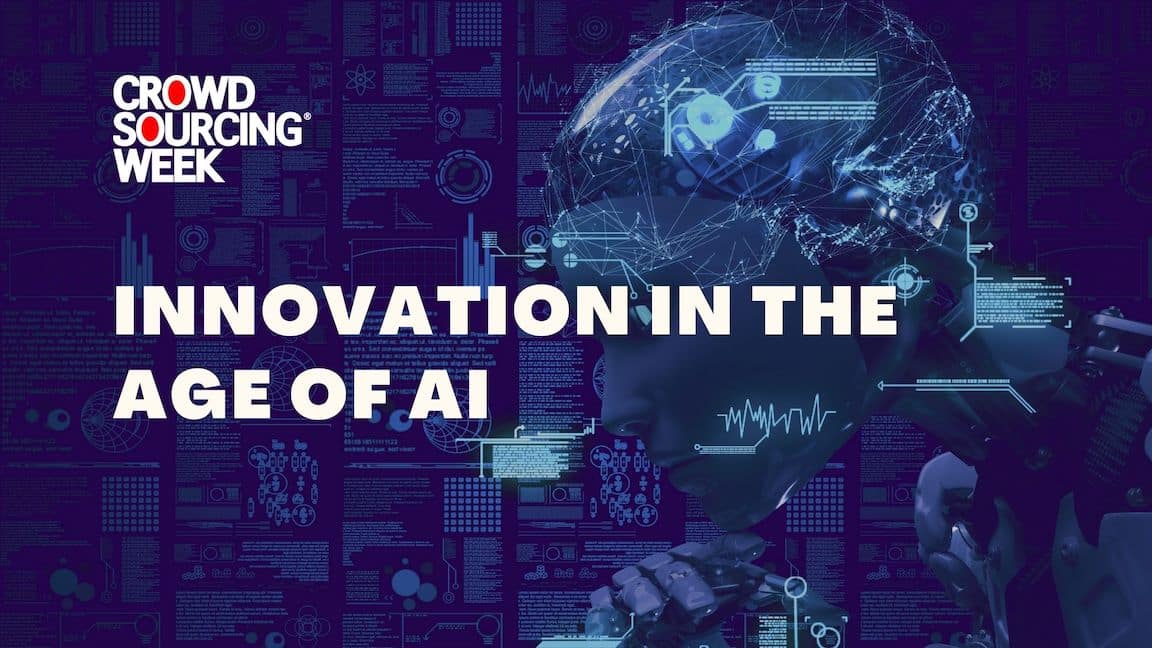The strategic importance of AI technology is growing exponentially across industries and shows no signs of slowing down. Many businesses are exploring and investing in new solutions to stay competitive in the age of AI — from banking using AI to crunch big data, to customer service departments relying on AI to route calls to the correct agent, or the eventual transformation of the automotive industry with self-driving cars that can make the roads safer and less congested.
According to a recent Accenture Report, “over 1,600 C-suite executives and data-science leaders from the world’s largest organizations found that nearly 75% of companies have already integrated AI into their business strategies and have reworked their cloud plans to achieve AI success.” In other words, if you’re not already invested in AI, you’re falling behind.
Today’s Advantage…Tomorrow’s Table Stakes
As markets are becoming increasingly competitive, companies are looking for a competitive edge. To that end, AI tools are a great starting point for product development and innovation.
AI can do many things that we can’t, and every year that list of skill sets increases. AI can process large amounts of data exponentially faster than a human, finding novel patterns we can’t see, and then make reliable decisions based on that data. For example, by analyzing consumer data and identifying market trends, software with AI capabilities like Tableau and Power BI can help uncover opportunities that would otherwise get overlooked.
“I think this is huge,” said professor Erik Brynjolfsson, director of Stanford University’s Digital Economy Lab. “Most of the U.S. economy is knowledge and information work, and that’s who’s going to be most squarely affected by this,” he said. “ I like to use the word ‘affected,’ not ‘replaced,’ because I think if done right, it’s not going to be AI replacing lawyers (as one example); it’s going to be lawyers working with AI replacing lawyers who don’t work with AI.”
While embracing AI today can create a competitive advantage, it won’t be long before using AI becomes the new table stakes. As usual, late adopters risk falling behind their competitors in terms of the many benefits AI offers, including cost efficiencies, productivity advantages, novel insights, and product or service quality.
A Watershed Moment for Efficiency
AI’s ability to automate tasks and processes that would otherwise depend on human labor, or be impossible, is itself an opportunity for employees to allocate more time for innovation and strategic decision making. For example, in the age of AI, personal assistants such as Alexa, Google Assistant, or Cortana, save time in countless ways. While the feature sets vary, most allow for internet searches, media playback, message dictation, scheduling, and alarms, all by voice command.
Then there are the many AI notetakers that instantly transcribe and summarize meetings with nearly 100% accuracy. With the chore of note taking eliminated, employees can instead focus on the high-level takeaways and connect ideas that they otherwise wouldn’t have had time to focus on.
One of the applications of AI technology that is truly revolutionary is the recent proliferation of AI powered writing tools such as Notion AI, ChatGPT, and Brightidea Memo AI Writing Assistant, that make blank page syndrome a thing of the past. AI writing tools may not give you a polished final draft, but they can help get you started by quickly writing the first draft of a blog post, job description, meeting agenda, business memo, email, or essay.
In the age of AI, writing tools are especially handy for companies that innovate by using the lauded Working Backwards Memo Writing Process developed at Amazon for bringing new ideas to market. This is because the Working Backwards process largely consists of writing a painstakingly thorough memo that enables the team to truly understand if the proposed idea is viable, and if so, what the specific constraints and challenges are that could prevent successful execution. With AI writing tools integrated with your idea management software, you can quickly develop a clear outline for your memo that you can then flesh out in collaboration with cross functional partners and stakeholders.
Streamlining Each Stage of the Innovation Process
There’s a common misconception that innovation is just about jotting ideas down on sticky notes. The reality couldn’t be further from the truth — innovation is a formal discipline and a multi-stage process, from the initial spark of ideation, to idea collection, collaboration with colleagues, evaluation of an idea’s merit, development of the idea into a plan, and then executing on that plan and reporting on results. AI tools can support all of these stages to varying degrees.
Ideation is the fun part where you can let go of practical concerns and see where your mind takes you in the age of AI. But it takes a lot of ideas to finally find one worth allocating capital and resources to. Fortunately, idea generation can be supported by many of the numerous mind mapping AI tools that not only help you produce more ideas but see connections between them. Once you have plenty of promising ideas they need to be captured and stored for further collaboration, evaluation, and development. With idea management software, input from employee surveys and polls, comments from your social media monitoring, insights from your analytics team, ideas from brainstorms and pitch competitions, cross functional stakeholder requests, and directives from management, can easily be collected and stored in a centralized location where each input can be fairly evaluated. The idea management software can then work with AI personal assistants to easily capture new ideas wherever and whenever they happen.
After the idea has been captured, the process of evaluating the merit of the idea begins. ProoV is a company that streamlines the proof-of-concept process for enterprises looking to test and evaluate new startup solutions. The company’s AI-based technology analyzes the distributions and trends of the datasets provided and generates new databases that are used within the proof-of-concept environment. This allows companies to test the solutions securely in a production-like environment before reaching production.
Building a case for the viability of an idea, especially those that are game changing and defy business-as-usual processes, takes extensive research and subject matter expertise. AI can aid this stage of the innovation process by making knowledge more accessible. For example, many researchers in the age of AI have been using it as a tool to more quickly gather and synthesize a large number of research papers, which can greatly speed up the literature review process.
Brian Uzzi, the Richard L. Thomas Professor of Leadership at the Kellogg School of Management, and his team, used AI to evaluate the text of journal papers to predict whether the conclusions in the papers would be reproducible. According to a Kellogg Insight Article “the AI model was able to predict replicability as accurately as expert prediction markets, which can take as long as a year to complete, in much less time and effort. This could give researchers and journal editors a powerful tool to aid in the review process of scientific work.”
AI can also help more accurately calculate the risk of an R&D project, which can reduce financing cost and allow companies to more efficiently allocate resources. This has huge implications for the pharmaceutical industry. According to PharmaNewsIntelligence “Over the years, drug discovery has become increasingly competitive and expensive, which has driven pharmaceutical companies to look into AI as a new method to reduce research and development costs, while avoiding costly errors.” If successful, these efforts can reduce the cost of developing drugs, while improving patient outcomes.
Crowdsourcing 2.0
Crowdsourcing is another area that has been impacted in the age of AI. While companies see crowdsourcing as a valuable and cost-efficient mechanism, the discipline of crowdsourcing has matured and there’s a growing awareness of its limitations. However, AI has breathed new life into the practice of crowdsourcing by helping to efficiently collect and interpret crowdsourced data. For example, crowdsourcing is increasingly used in health and medical research. In this use case, a group of people is asked to provide data regarding their health, which AI collects and analyzes to support the development of new treatments. The crowd would then either get paid for its data or would provide the data for free to help advance a good cause.
A real life example of this took place during COVID-19 when an app called How We Feel was used to gather data from its hundreds of thousands of users in order to develop predictive models to help overcome testing capacity limitations and identify disease hotspots. The app also helped doctors, scientists, and policymakers understand what factors were most associated with people who tested positive in that period such as key symptoms, exposure risks, pre-existing medical conditions, and demographic information.
Improve Your Innovation Outcomes with AI
Whether you’re looking to generate more and better ideas, enhance efficiency, streamline operations, identify patterns, or de-risk a new initiative, there are numerous AI tools on the market that can help. Innovation in the age of AI can help your company be more productive, more informed, and gain novel insights that would otherwise be inaccessible, incorporating AI into your innovation program is a no-brainer. And, best of all, many powerful AI tools are very affordable. Taking advantage of these tools today positions you and your team for long term growth and success as AI quickly becomes an essential tool in business.





0 Comments